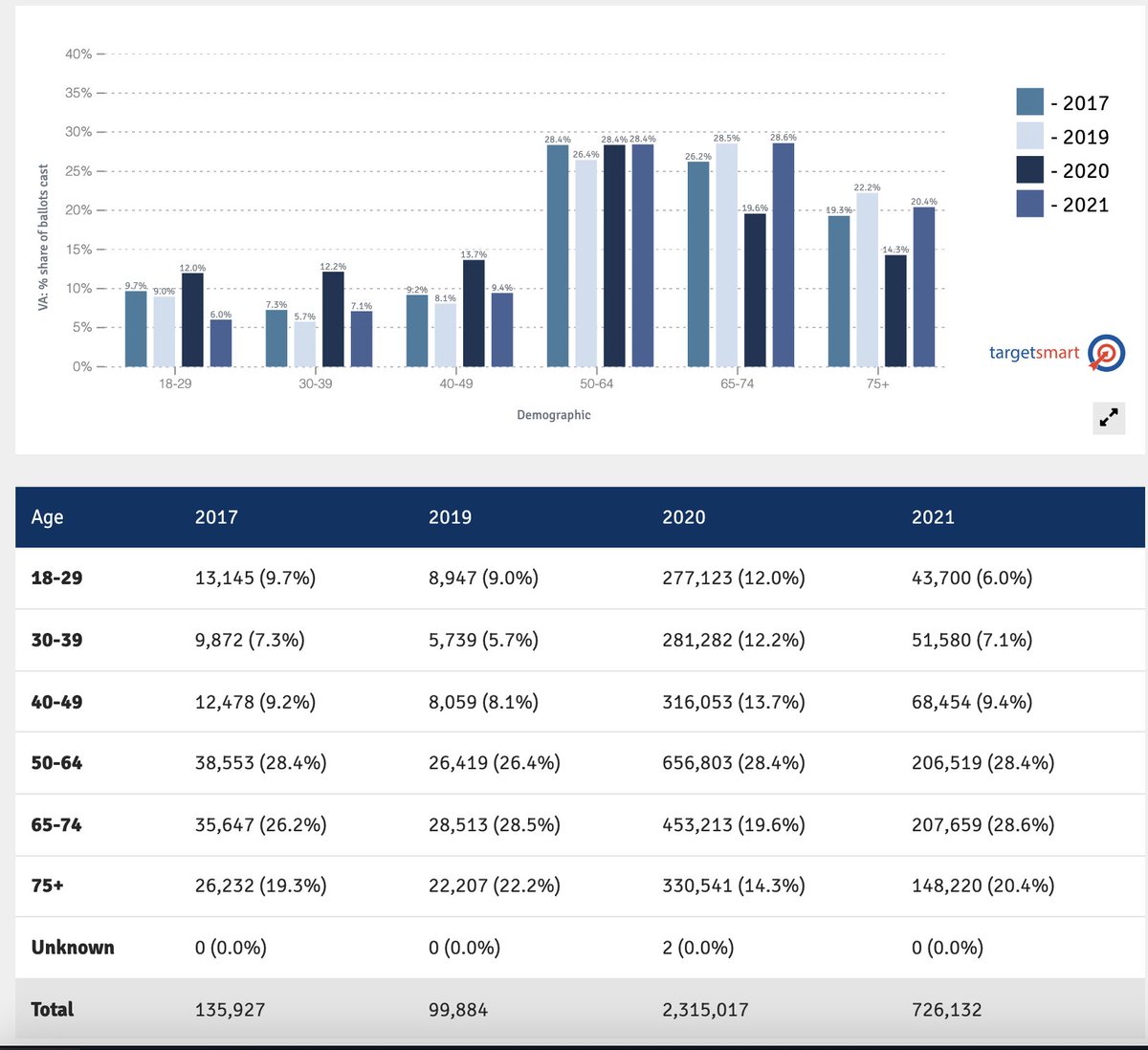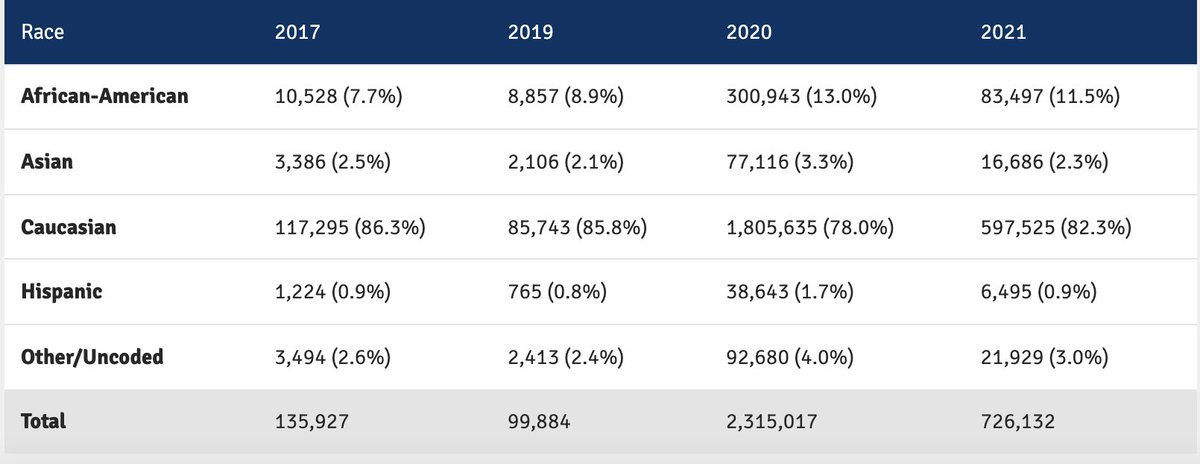
Here's our view of the early vote in VA, with one week until Election Day. tldr version: good signs for Dems, in general, but some deficiencies underscore the work they'll need to get done to win. insights.targetsmart.com/what-the-va-ea…
Strongest signs for Dems in VA early vote - a wider modeled party advantage than at this same point in 2020. But that's a bit of a moving targeting with dynamic models.
Black turnout among early voters in VA is strong, with college educated Black voters exceeding their 2020 vote share. White college educated voters are also surging.
Cause for concern for Dems in VA early vote: severely lagging youth vote, and AAPI and Latino early vote falling well behind 2020 levels.
• • •
Missing some Tweet in this thread? You can try to
force a refresh





